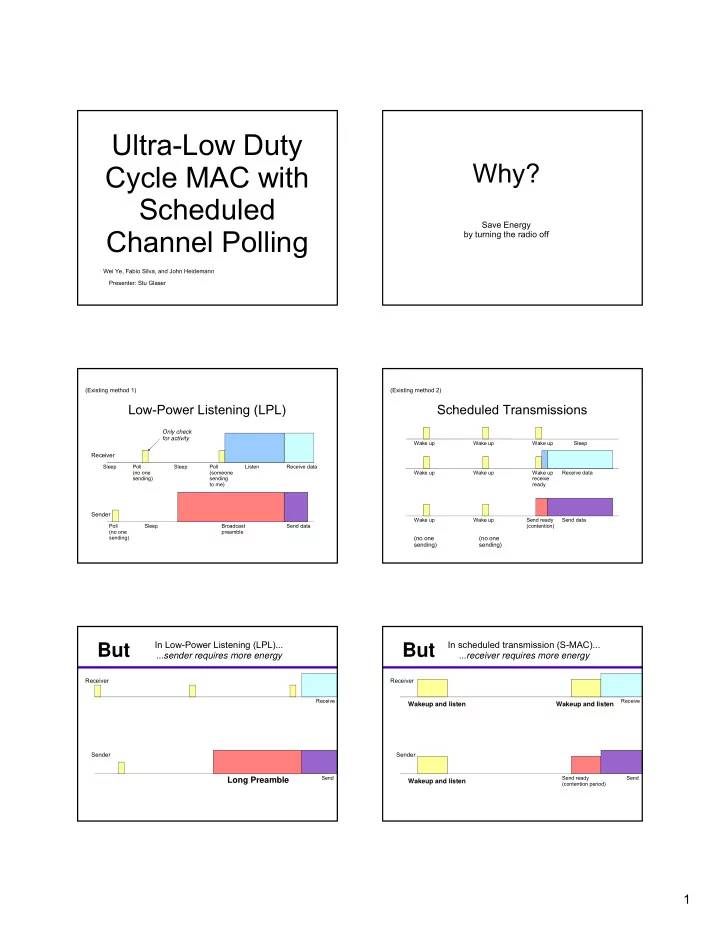

Ultra-Low Duty Why? Cycle MAC with Scheduled Save Energy Channel Polling by turning the radio off Wei Ye, Fabio Silva, and John Heidemann Presenter: Stu Glaser (Existing method 1) (Existing method 2) Low-Power Listening (LPL) Scheduled Transmissions Only check for activity Wake up Wake up Wake up Sleep Receiver Sleep Poll Sleep Poll Listen Receive data (no one (someone Wake up Wake up Wake up Receive data sending) sending receive to me) ready Sender Wake up Wake up Send ready Send data Poll Sleep Broadcast Send data (contention) (no one preamble sending) (no one (no one sending) sending) In Low-Power Listening (LPL)... In scheduled transmission (S-MAC)... But But ...sender requires more energy ...receiver requires more energy Receiver Receiver Receive Receive Wakeup and listen Wakeup and listen Sender Sender Send Send ready Send Long Preamble Wakeup and listen (contention period) 1
Scheduled Channel Polling (SCP) So Combine them! Receiver Sender Low Power Listening (LPL) � Poll channel � Transmit (short) preamble � If there's no activity, then sleep � Transmit header Scheduled Transmissions � Otherwise, wake up � Transmit message � Receive header � If the message is not for me, then sleep Scheduled Channel Polling (SCP) � Otherwise, receive message Remember this acronym Issue: synchronizing schedules Issue: contention Synchronization Two-Phase Contention Preamble Data 1 2 � Send out a SYNC packet every 10 to 60 minutes. Senders ● Wake up ● Select a slot Contention Windows ● If someone else selects an � (Slightly) larger preamble. earlier slot, abort send What about the hidden terminal problem? Issue: network load Implementation Adaptive Channel Polling Mica2 motes When a listener receives a message, it creates high-frequency polling slots TinyOS On the next regular poll, the listener begins sending to the next listener. Implemented LPL for comparison 2
Results Critique SCP outperforms LPL in every category What about the hidden terminal problem? Duty cycle How does SCP compare to S-MAC? How do they synchronize the entire network? LPL: 1-2% -- Explained in another paper (but the reference is easily missed) SCP: 0.1% 3
Recommend
More recommend